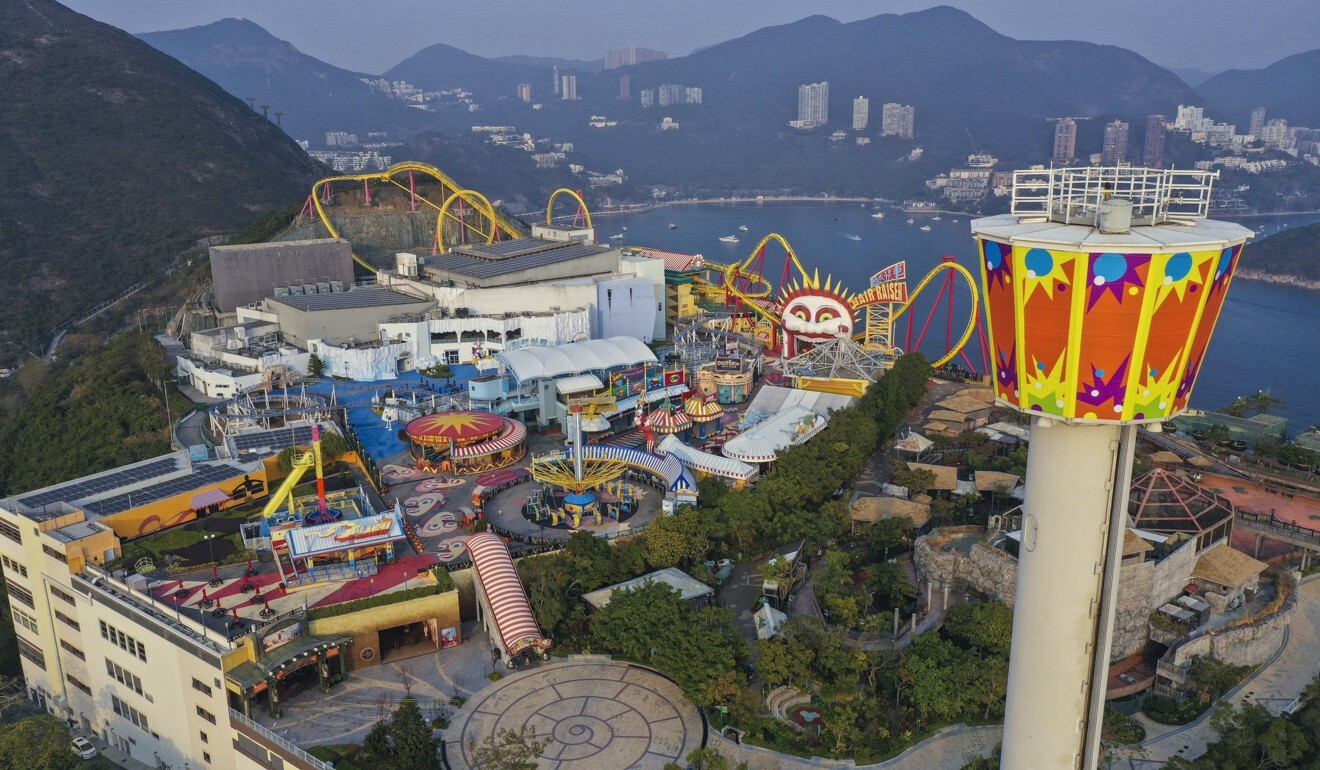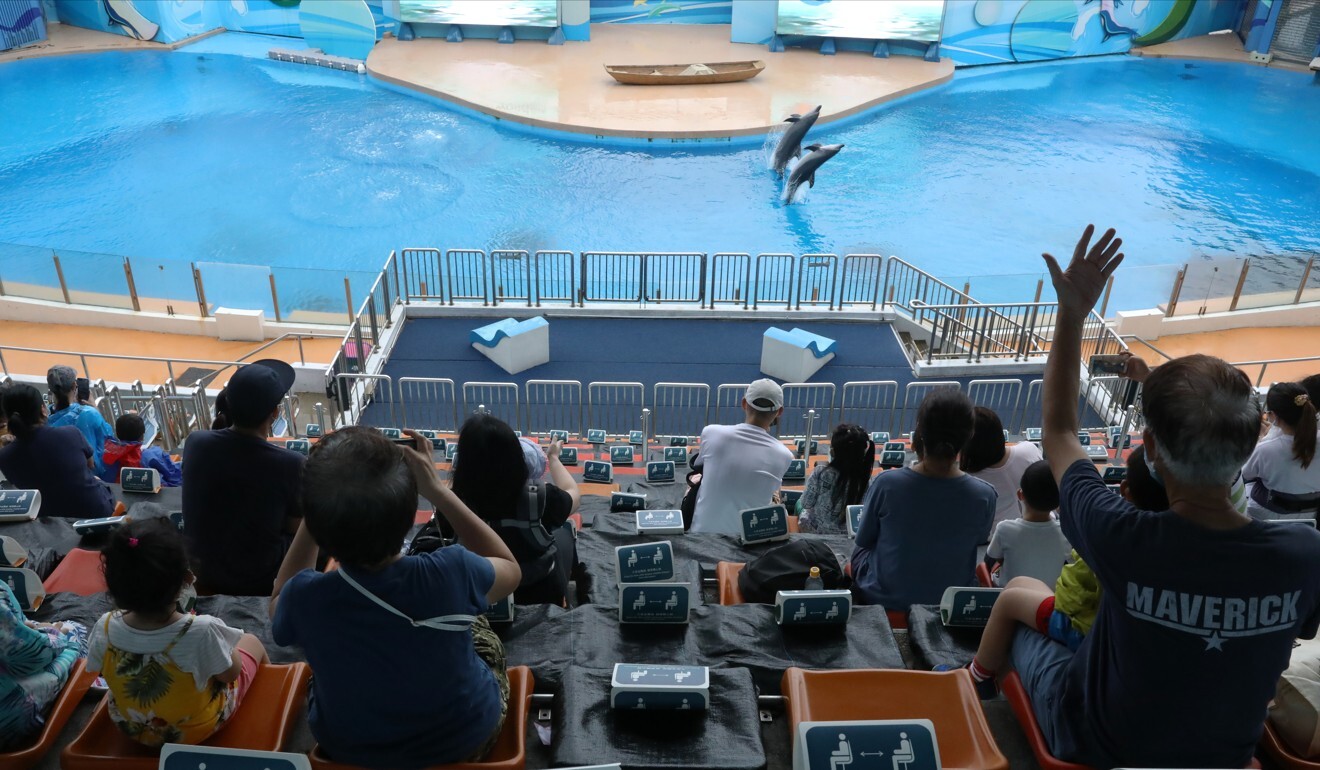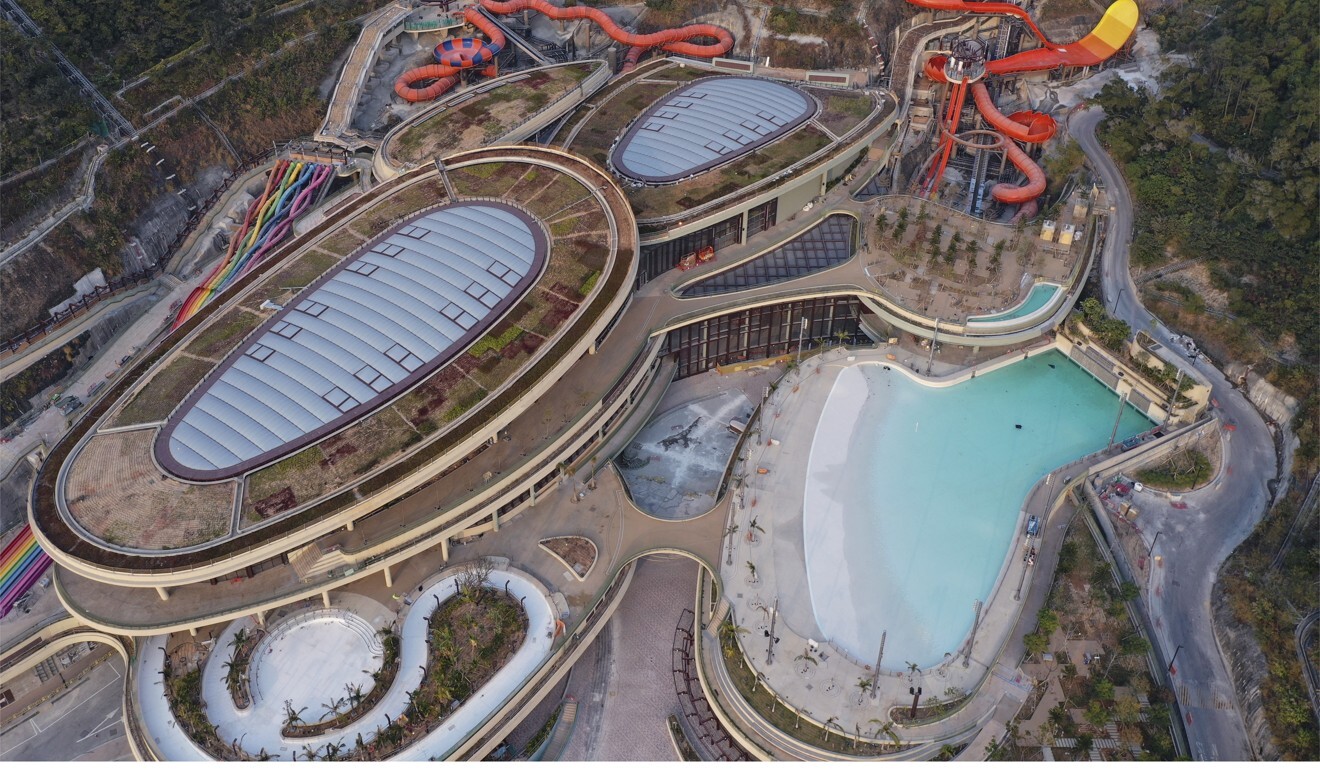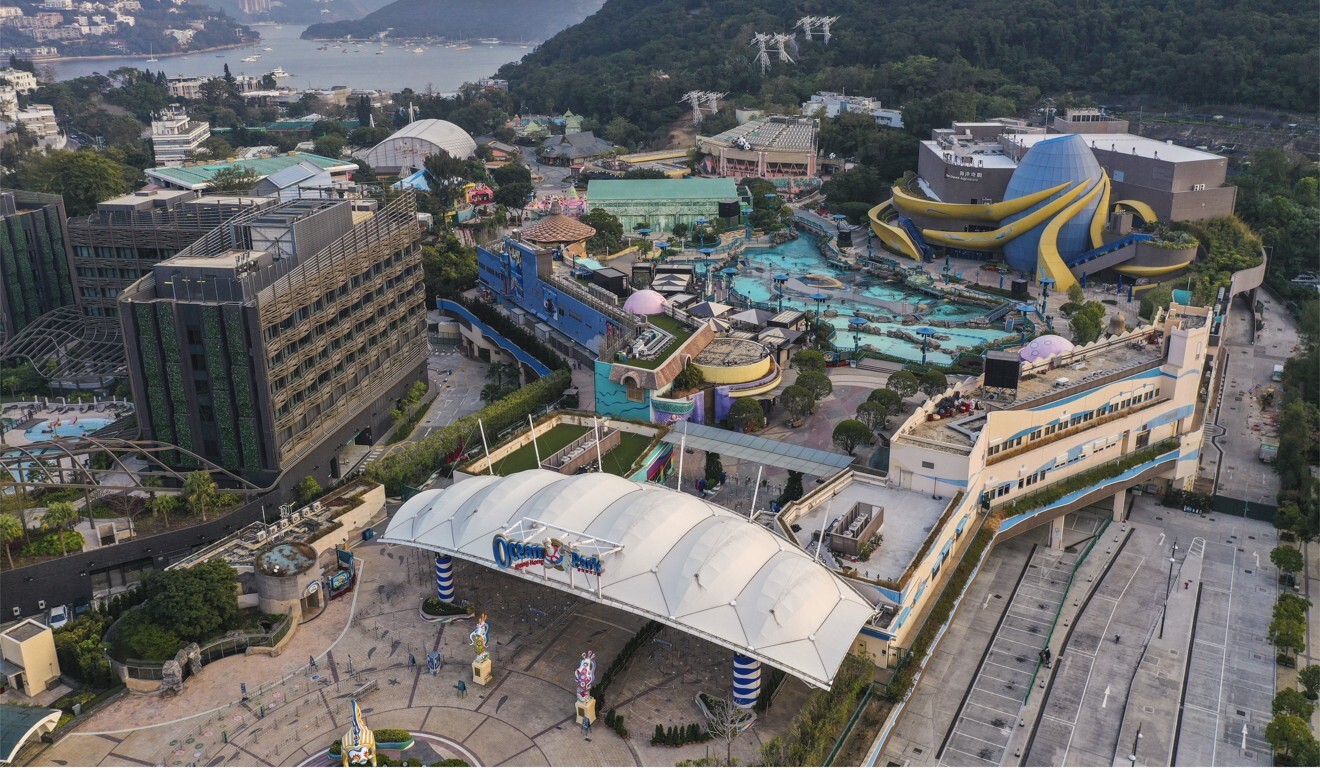
Hong Kong’s Ocean Park seeks HK$2.8 billion to survive as it transitions with new entertainment zone, conservation efforts
- Park plans to offer more than half its 1 million square feet to outside service providers, as finance chief envisions a ‘regular place for locals to hang out’
- City will also waive interest payments on HK$3.67 billion loan due in September
Confirming the Post’s earlier reports, the park and government on Monday revealed the city would grant the resort HK$1.67 billion (US$215.3 million) in working capital and another HK$1.12 billion for organising conservation and education activities. The latter amount will be spent over the next four years.
The government will also ease the park’s debt burden by waiving interest payments on two loans totalling HK$5.4 billion that are due in September.

The overhaul will see the 44-year-old park position itself as a platform for outsourced entertainment, and a financially self-sufficient leisure and retail destination, with more than half of its near 1 million square feet to be offered to various service providers, according to a source.
Its new HK$4 billion all-weather mega water park, which was expected to be ready for use around August, would charge users separately, Ocean Park chairman Lau Ming-wai said.
Secretary for Commerce and Economic Development Edward Yau Tang-wah said Ocean Park was key to the development of a new Southern district tourism hub – the Invigorating Island South project – and the government would support the one-off funding to keep it alive.
Troubled Ocean Park saved as lawmakers approve HK$5.4 billion relief fund
“We want to make Ocean Park a regular place for locals to hang out, and change it from the previous pattern of once-a-year visits,” he said.
Lau said the park would return to its original mission of education and conservation. He said the conservation side would undertake more initiatives to reach out to schools and communities.
“Ocean Park will no longer be just a theme park, you can call it a resort or destination,” Lau said of the plan to create a mixture of new revenue streams.
Commissioner for Tourism Joe Wong Chi-cho said the government would waive interest payments on the government loan beginning from July this year and repayments would be delayed by seven years from September to 2028. The loan could be fully repaid by 2059.
The government was expected to bear about HK$4 billion in foregone interest payments based on present-day values following the loan restructuring, Wong added.
A HK$5.4 billion bailout received from the government last May will run out in the middle of this year after the lion’s share – HK$3.07 billion – was used to repay commercial loans. The bailout plan was watered down from HK$10.6 billion because of an outcry from lawmakers across the political spectrum.

The Legislative Council’s Finance Committee will have to approve the latest funding.
The park’s expenses include the wages of about 1,800 full-time staff and other fixed costs.
Last year, it was forced to close for 237 days. No date has been set for ending the latest closure, which started on December 2.
“It may take at least three years to implement the new business model, which means the park needs fresh cash to keep operations going for some time,” the source said.
The park, a not-for-profit organisation run by a statutory board, suffered deficits for four straight years before the bailout helped it record a HK$1.92 billion surplus in the financial year ended June 30, 2020.
An outdated business model was blamed. Attractions such as the roller-coaster rides have essentially remained unchanged for years while keeping captive animals has fallen out of favour.
Lau said the new business model would turn a near 400,000 sq ft lowland area near the main entrance at Wong Chuk Hang into a new retail, dining and entertainment hub. Public access to the area will be free and the park will put operations up for tender.
Some parts of the headland on the summit of Nam Long Shan will be converted into new attractions, with features such as a bungee jump and a zip line under consideration. Headland attractions will charge users on an individual basis.
Two public piers – one at the lowland waterfront of Deep Water Bay and the other one next to the water park at Tai Shue Wan – are planned to enhance connectivity.
To pave the way for the new business model, the government will seek to amend regulations to allow the park to offer commercial activities and tourist products outside the park.
To make way for the new attractions, the park will tear down some old-fashioned rides and convert the 3,000-seat Ocean Theatre into a venue for concerts or other events – meaning the decades-long signature dolphin and sea lion shows will come to an end.
While outsourcing most operations, the park would retain management of animals such as giant pandas and sea mammals, Lau said.
It is a good plan going forward, outside operators can bring in fresh ideas and a fresh look
In recent months, the park’s full-time payroll had shrunk from 2,000 because of natural attrition, one source said.
Lau said staff would be given a chance to apply for about 400 jobs at the water park, which is due to open in August or September. It was delayed by two years while its budget ballooned from HK$2.9 billion to more than HK$4 billion.
Former chairman Allan Zeman said the new business model would help with innovation while the water park would add a unique attraction for Hongkongers especially younger people.
“It is a good plan going forward, outside operators can bring in fresh ideas and a fresh look,” he said. “The water park will add another element to Hong Kong and make the city more interesting.”

Zeman said the new initiatives would help differentiate the park from rivals – Hong Kong Disneyland Resort on Lantau Island and Chimelong Ocean Kingdom in Zhuhai.
However, tourism sector lawmaker Yiu Si-wing said Ocean Park would have to justify the request for HK$1.67 billion in working capital to legislators, even though he supported turning the lowland area into an entertainment hub.
“How much of it will go to financing the cost of reconstructing the headland into a new retail and dining mixed-use space?” Yiu said. “Or are they just asking for money to cover up losses from being shut throughout most of the pandemic? Are they asking for money just so they don’t go bankrupt? [Ocean Park] needs to be precise on where this money will be going.”

Overall, Yiu agreed the new business model allowed the park to collect rental income from leasing its space to operators.
Yiu said land-use laws related to the park’s lowland space near the MTR station would have to be amended for the retail-dining hub, which would set the timetable back by two to three years.
Freddy Yip Hing-ning, president of the Hong Kong Travel Agent Owners Association, said he believed the hub would be popular with young tourists but cautioned that Ocean Park had to be prudent.
“I think it’s a good idea to let operators in the private sector use the space, whether it’s for shopping or for entertainment attractions. That way, it can offload some of the operational cost pressures from Ocean Park,” Yip said.
Meanwhile, local opposition politician Kevin Tsui Yuen-wa said the park operator should consult district councillors before making such big announcements.
“The plan does not indicate how it will be incorporated with the Invigorate Island South Initiative and it doesn’t mention how the Jumbo Floating Restaurant will be utilised,” the Democratic Party district councillor said.


